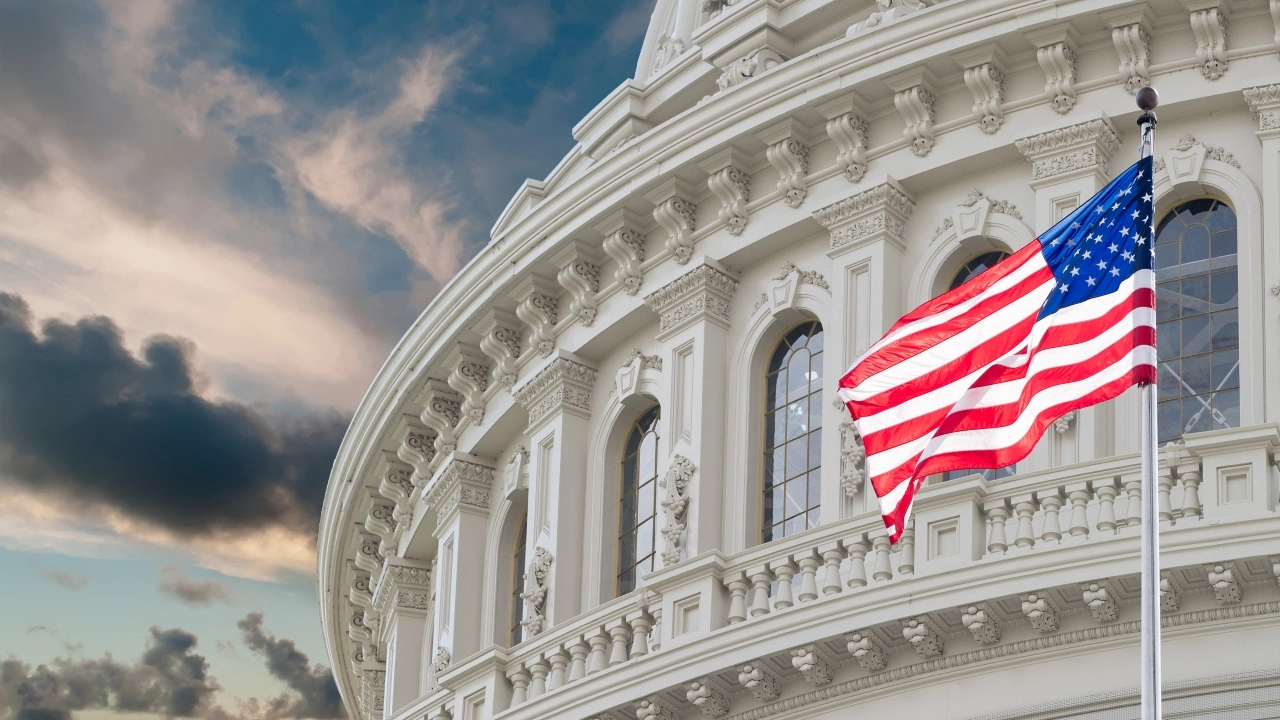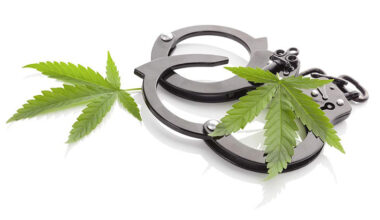Nearly all hemp-derived THC products in the U.S. will become illegal in late 2026 under legislation passed by the U.S. Senate late Monday.
Tucked into spending bills meant to end the record-long government shutdown, language redefining “hemp” to exclude the numerous intoxicating hemp products that have proliferated across the country since the 2018 Farm Bill passed by a 60-40 vote.
A last-ditch effort by Kentucky Republican Sen. Rand Paul to halt colleagues’ efforts to close the so-called “loophole” failed.
Along with the other spending bills that would fund the government through at least next year, the hemp-derived THC ban will now head to the House of Representatives.
A vote could come Wednesday, Republican House Speaker Mike Johnson indicated on Monday.
Every hemp ‘plant would have to be destroyed’
To stop it, lawmakers in the Republican-controlled House would have to defy President Donald Trump.
Trump supports the hemp ban, a White House official told NBC News on Monday.
The bill, which takes effects 365 days after passage “makes the hemp industry kaput,” Paul said on the Senate floor ahead of the vote.
The new limits “will eliminate 100 percent of the hemp products in our country,” he said.
“Every (hemp) plant in the country will have to be destroyed.”
Operators “should prepare for the real possibility that their products will lose the safe harbor under the current 2018 Farm Bill,” said attorney Seth Goldberg, who co-chairs the cannabis and hemp practice at Philadelphia-based Pashman Stein Walder Hayden.
“It would be prudent for hemp-related companies to begin thinking through how such changes will impact various aspects of their business,” he added.
That would include small businesses across the country as well as major retailers like Total Wine & Spirits and Circle K that carry hemp-derived beverages.
Closes 2018 Farm Bill loophole for THCA and synthetics like THC-P
The ban language is in the “Agriculture, Rural Development, Food and Drug Administration, and Related Agencies Appropriations Act” that appeared in the Senate Appropriations committee over the weekend.
The bill’s redefinition would also override and nullify state law regulating hemp products, such as the increasingly popular hemp-derived THC beverages sold by major mainstream retailers including Target.
It redefines “hemp” as only “the plant Cannabis sativa… and all derivatives, extracts, cannabinoids… with a total tetrahydrocannabinols concentration (including tetrahydrocannabinolic acid) of not more than 0.3 percent on a dry weight basis.”
That would close the “THCA loophole” that some merchants use to sell so-called “THCA flower” online and outside of state-regulated marijuana channels.
It also excludes from the definition of hemp “cannabinoids” that:
- “(A)re not capable of being naturally produced” by the cannabis plant, which would include HHC.
- “(W)ere synthesized or manufactured outside the plant,” which would include THC-P.
Subscribe to the MJBiz Factbook
Exclusive industry data and analysis to help you make informed business decisions and avoid costly missteps. All the facts, none of the hype.
What you will get:
- Monthly and quarterly updates, with new data & insights
- Financial forecasts + capital investment trends
- State-by-state guide to regulations, taxes & market opportunities
- Annual survey of cannabis businesses
- Consumer insights
- And more!
Growing momentum for hemp-derived THC ban
Encouraged in part by state and federal laws that restricted access to legal cannabis, hemp businesses have boomed into an industry worth an estimated $28.4 billion that employs hundreds of thousands of people, according to the U.S. Hemp Roundtable, an industry lobby.
Hemp also picked up many enemies among the $32 billion regulated marijuana industry as well as other mainstream sectors who saw it as a less regulated, unwelcome threat.
Efforts to revisit the hemp question picked up momentum this summer, with Maryland Republican U.S. Rep. Andy Harris and Kentucky Republican Sen. Mitch McConnell both pushed for ban language.
And support seemed to grow throughout the fall amid the government shutdown.
In late October, 39 state attorneys general called on federal lawmakers to close the loophole and work on regulation.
Major alcohol, cannabis lobbies supported hemp-derived THC ban
More recently, major alcohol industry lobbies added their voices to a chorus that also included Capitol Hill cannabis industry players.
Ironically, the ban is poised to hurt small brewers who have added hemp THC drinks to their offerings in response to changing consumer habits.
“The rug just got pulled out from under us,” Omar Ansari, president of Minneapolis-based Surly Brewing Company, told Minnesota Public Radio.
However, it’s a rare federal win for marijuana multistate operators such as Jushi Holdings, which earlier this fall filed lawsuits in Virginia and Pennsylvania seeking to halt hemp-derived THC sales, will be satisfied.
The hemp redefinition is “part of a long overdue cleanup to bring the law current with the regulations around intoxicating hemp,” said Trent Woloveck, Jushi’s chief strategy officer.
“The regulated cannabis industry can now get back to normalizing cannabis without all the bad actors and criminals taking advantage of the Farm Bill loophole.”
Hemp advocates were understandably vexed Monday.
“What happened was sneaky, and it’s not how this country was supposed to work,” said Steven Brown, CEO of Minnesota-based Nothing But Hemp.
“Now that we’ve proven there’s a demand, big liquor and medical marijuana see us as a threat and would rather shut us down than compete fairly.”
MJBizDaily reporter Margaret Jackson contributed to this report.
Chris Roberts can be reached at chris.roberts@mjbizdaily.com.
Medical Disclaimer:
The information provided in these blog posts is intended for general informational and educational purposes only. It is not a substitute for professional medical advice, diagnosis, or treatment. Always seek the advice of your physician or other qualified healthcare provider with any questions you may have regarding a medical condition. The use of any information provided in these blog posts is solely at your own risk. The authors and the website do not recommend or endorse any specific products, treatments, or procedures mentioned. Reliance on any information in these blog posts is solely at your own discretion.






